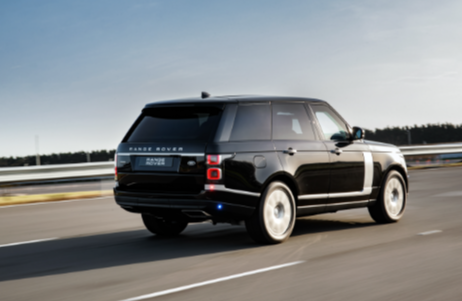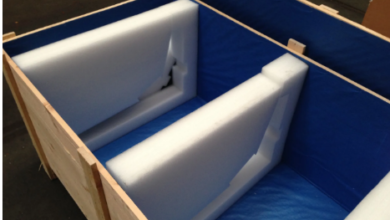Civilian Armored Vehicles: Protection on the Road

In an era marked by increasing concerns about personal safety and security, civilian armored vehicles have emerged as a niche yet significant segment of the automotive market. These vehicles, designed to withstand various threats ranging from theft to ballistic attacks, offer a heightened level of protection for individuals, families, and professionals in high-risk environments. This article explores the concept of civilian armored vehicles, their features, benefits, and considerations for potential owners.
Features of Civilian Armored Vehicles
- Ballistic Protection:
- Civilian armored vehicles are equipped with ballistic materials such as hardened steel, aramid fibers (e.g., Kevlar), or composite materials to provide protection against firearms, including handguns and rifles.
- Armored panels are strategically placed around the vehicle, including doors, windows, and sometimes the floor and roof, to create a protective cocoon for occupants.
- Bulletproof Glass:
- Armored vehicles feature bulletproof glass that can withstand projectiles and attempts at forced entry. These windows are typically made of laminated glass layers and polycarbonate, offering optical clarity while ensuring security.
- Reinforced Structure:
- The chassis and body of armored vehicles are reinforced to accommodate the additional weight of ballistic materials without compromising vehicle performance or handling.
- Modifications may include strengthening suspension systems, brakes, and tires to support the increased load.
- Security Features:
- Armored vehicles often incorporate advanced security features such as run-flat tires that enable continued driving even after sustaining punctures.
- Some models may include fire suppression systems, GPS tracking, intercom systems, and smoke screens for enhanced security measures.
- Interior Comfort and Customization:
- Despite their protective capabilities, civilian armored vehicles strive to maintain interior comfort and luxury. Manufacturers offer customization options for interiors, including premium leather upholstery, entertainment systems, and climate control features.
- Discreet Appearance:
- Modern armored vehicles are designed to blend in with typical luxury or executive car aesthetics to avoid drawing attention to their armored status. This discretion is crucial for personal security and privacy.
Benefits of Civilian Armored Vehicles
- Personal Safety and Security:
- The primary benefit of owning a civilian armored vehicle is enhanced personal safety and security against potential threats such as carjacking, robbery, or targeted attacks.
- Armored vehicles provide peace of mind for individuals and families living or traveling in high-risk areas or volatile environments.
- Protection for High-Profile Individuals:
- Celebrities, politicians, executives, and diplomats often opt for armored vehicles to mitigate risks associated with their public visibility and potential targeting.
- These vehicles offer a secure means of transportation without compromising mobility or lifestyle.
- Business and Professional Use:
- Armored vehicles are utilized by businesses and professionals operating in sectors such as banking, security services, valuable goods transport, and law enforcement.
- They ensure the safe transport of personnel, assets, and sensitive information in potentially hazardous situations.
- Preservation of Privacy:
- Armored vehicles provide a level of privacy and confidentiality for occupants, shielding them from unwanted attention or surveillance attempts.
- This aspect is particularly valued by individuals seeking to maintain personal and professional confidentiality.
- Resale Value and Longevity:
- Véhicules Blindés often retain higher resale values compared to standard vehicles due to their specialized nature and limited production.
- With proper maintenance, these vehicles can provide long-term service and reliability, making them a sound investment for security-conscious buyers.
Considerations for Potential Owners
- Cost: Civilian armored vehicles command premium prices due to the specialized materials, manufacturing processes, and security features involved.
- Buyers should consider upfront costs, operational expenses, and potential insurance premiums associated with owning an armored vehicle.
- Maintenance: Armored vehicles require specialized maintenance and servicing to ensure continued performance and reliability.
- Owners should establish relationships with reputable service providers experienced in armored vehicle care and repair.
- Legal and Regulatory Compliance:
- Ownership of armored vehicles may be subject to specific regulations, import/export restrictions, and registration requirements depending on the country or jurisdiction.
- Compliance with local laws regarding armor specifications, vehicle modifications, and security features is essential.
- Personal Use vs. Corporate Fleet: Individuals and businesses should evaluate their specific security needs and operational requirements when considering the purchase of armored vehicles.
- Factors such as intended use, frequency of travel, and level of protection required will influence the choice between personal ownership or incorporation into a corporate fleet.
- Read more Signs You Need Professional Mold Removal Services in Your Home
Conclusion
Civilian armored vehicles represent a niche market segment catering to individuals, families, and professionals seeking enhanced personal security and protection. With features such as ballistic protection, bulletproof glass, and advanced security systems, these vehicles offer peace of mind in high-risk environments. Despite their specialized nature and higher costs, armored vehicles provide tangible benefits in terms of safety, privacy, and asset protection. Potential owners should carefully weigh the benefits and considerations associated with owning an armored vehicle to make informed decisions aligned with their security needs and lifestyle requirements.





